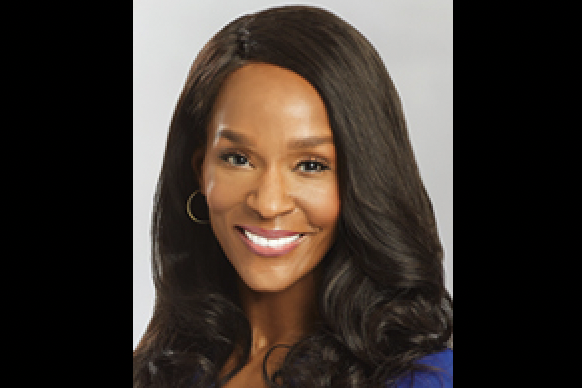
January 19, 2023
 Source/6ABC
Source/6ABC
TaRhonda Thomas, a reporter at 6ABC, announced she will take time off to recover from surgery to remove uterine fibroids.
6ABC reporter TaRhonda Thomas opened up this week about an upcoming surgery to remove uterine fibroids, an operation that will keep her off "Action News" broadcasts for months as she recovers.
Thomas, a Louisiana native who joined the TV station in 2019, shared a video on Facebook Wednesday in which she spoke about her condition and the importance of spreading awareness.
"People don't talk about it a lot and it impacts so many women, and especially Black women," Thomas said. "We're far more likely to not only develop them, but be hospitalized because of them."
Uterine fibroids are non-cancerous growths in the uterus that typically develop during childbearing years. They can be small and undetectable to the human eye or they can enlarge into bulky masses that lead to a range of health problems.
"For me, it has become not just inconvenient, but dangerous, so it led me to a really, really hard decision," Thomas said. "And it's hard because there's a lot that's involved, but at the end of the day, I have to say that I'm thankful that I have three beautiful children, and you know, now it's time to be there for them."
You won’t be seeing me on TV for a while. Here’s why. 🩹 ❤️
Posted by TaRhonda Thomas on Wednesday, January 18, 2023
Fibroids are the most common benign tumors of the uterus and can be located within the uterine wall, in the uterine cavity or outside of the uterus, ranging from less than an inch to eight inches or more. Some women experience no symptoms from them, and it's estimated as many as 77% of women will develop fibroids at some point in their lifetime. Usually, they are found during an abdominal or pelvic exam, a pelvic ultrasound or through other imaging technology to confirm a diagnosis.
Women who have many fibroids, especially those with larger growths and clusters, may have symptoms such as heavy menstrual bleeding, longer-lasting periods and pain in the abdomen, pelvis or lower back that doesn't subside. Other complications include difficulty emptying the bladder, constipation, sexual dysfunction and low red blood cell count resulting in anemia.
For pregnant women, the presence of fibroids or previously removed fibroids may impact the method of child delivery or result in early onset of labor. Women attempting to get pregnant may encounter fertility problems or experience multiple miscarriages before the fibroids are detected.
Though over-the-counter and prescription medications are available to control bleeding and pain from fibroids, severe cases usually require surgery to remove them.
Some minimally invasive treatments may be used to heat or freeze fibroids to shrink them and prevent further growth, but larger fibroids often require a myomectomy procedure. This can be performed through an incision through the abdomen, laparoscopically with smaller incisions or through the vagina and cervix. Often, these surgeries require a recommended four-to-six week recovery period, but more complicated cases could demand more rest.
Women who do not wish to have more children will sometimes opt to undergo a hysterectomy, which prevents the possibility that fibroids will return.
The incidence of uterine fibroids in the U.S. is up to three times higher for Black women than white women, with higher rates of severe symptoms and hysterectomy. Black women tend to develop fibroids at younger ages, in greater numbers and larger sizes, and with higher rates of recurrence after surgery. The reasons for this disparity are not entirely known, but limited health care access is thought to be a factor and research has suggested the use of hair relaxers may be associated with fibroid growth and uterine cancer.
Thomas, who became 6ABC's first race and culture reporter in 2021, has received regional and national awards from the Associated Press, the Edward R. Murrow Awards, the Heartland Emmys and the National Association of Black Journalists.
"I won't be seeing you guys for a while," Thomas said in her video. "This is taking time to rest and heal for a couple months after my surgery."
Thomas added that she will miss her time away from reporting. She said her hope is that sharing her story will help other women feel more comfortable talking about fibroids and seeking treatment.
"I'll miss being with the guys and doing what I love to do, but I have to do this right now," Thomas said. "And if there's a woman out there struggling like I was and still am, you're not alone. It's something we've got to talk about and put out there."